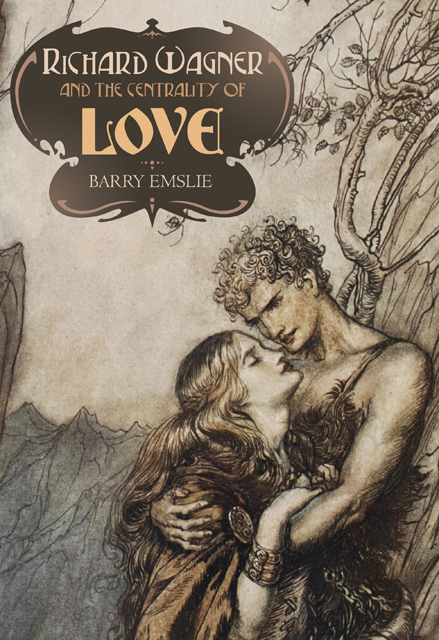Book contents
- Frontmatter
- Contents
- Author's Note
- 1 Introduction, or the Uses of Love
- 2 Sensuality and Spirituality in the Early Music Dramas
- 3 Music and the Eternal Feminine
- 4 The Ring of the Nibelung
- 5 Love and Death: Tristan und Isolde
- 6 The Mastersingers of Nuremberg
- 7 Parsifal
- 8 Contradictions and Speculations
- Notes
- Bibliography
- Index
4 - The Ring of the Nibelung
Published online by Cambridge University Press: 02 March 2023
- Frontmatter
- Contents
- Author's Note
- 1 Introduction, or the Uses of Love
- 2 Sensuality and Spirituality in the Early Music Dramas
- 3 Music and the Eternal Feminine
- 4 The Ring of the Nibelung
- 5 Love and Death: Tristan und Isolde
- 6 The Mastersingers of Nuremberg
- 7 Parsifal
- 8 Contradictions and Speculations
- Notes
- Bibliography
- Index
Summary
There are two obvious but frequently overlooked points which should be immediately mentioned with respect to Wagner's Ring cycle. The first is that it is ostensibly pagan and the second that it is a mess. Both will emerge in what follows as not only striking, but important. Perhaps it is best to begin with the latter not least because it will allow us to say something about Wagner's musical language without stepping outside the – admittedly broad – theoretical parameters of this book.
Contradiction, disorder and musical language
There are many reasons why The Ring is a mess. However, when raising this matter one consideration immediately surfaces, not least because it draws attention to Wagner's revolutionary work as composer. This is the bad fit between the sprawling story of The Ring and Wagner's compositional method. That is, although The Ring does have periods when it is tight, narratively rational and intellectually coherent, in general it disintegrates (plot-wise, aesthetically, ideologically) despite a compositional method which should obviate exactly this (typically operatic) destiny. Furthermore, the compositional method should have been particularly effective in the case of The Ring because it is employed in a more sophisticated and detailed manner than in the preceding music dramas.
This should be looked at here in the broader context of the artistic (in this case theatrical) genre. Wagner has developed his own genre, and it is new, revolutionary and fascinating. Up to now the term used for this has been ‘music drama’. It is applied to Wagner's ten stage compositions (The Ring counting as four: Das Rheingold, Die Walkure, Siegfried, Gotterdammerung) that begin with The Flying Dutchman and end with Parsifal. The music drama as genre has been defined in terms of its intellectual material together with certain plot features. It is about redemption, and although that redemption may have a religious patina or may even be placed in an explicit religious context (like Tannhauser and, with respect to the Grail, Lohengrin) it is really expressed as a form of heterosexual salvation in which one character is redeemed by the sacrifice of another. The former, in the classic Wagner configuration, is a striving suffering male and the latter is a wondrous female. Lohengrin, as we have noted, upturns the model with interesting results, but it is no less a redemption-based drama for that.
- Type
- Chapter
- Information
- Richard Wagner and the Centrality of Love , pp. 55 - 127Publisher: Boydell & BrewerPrint publication year: 2010



